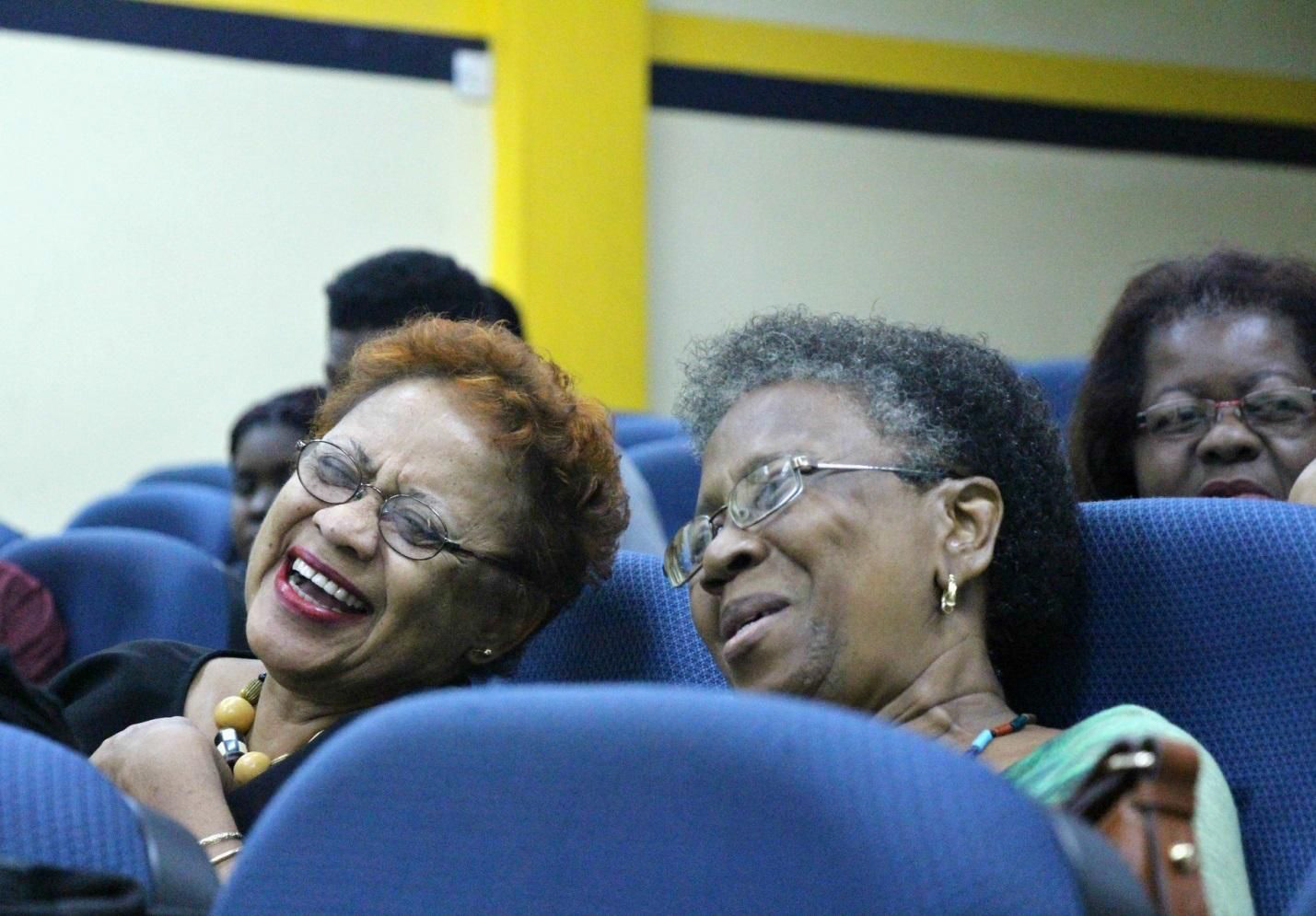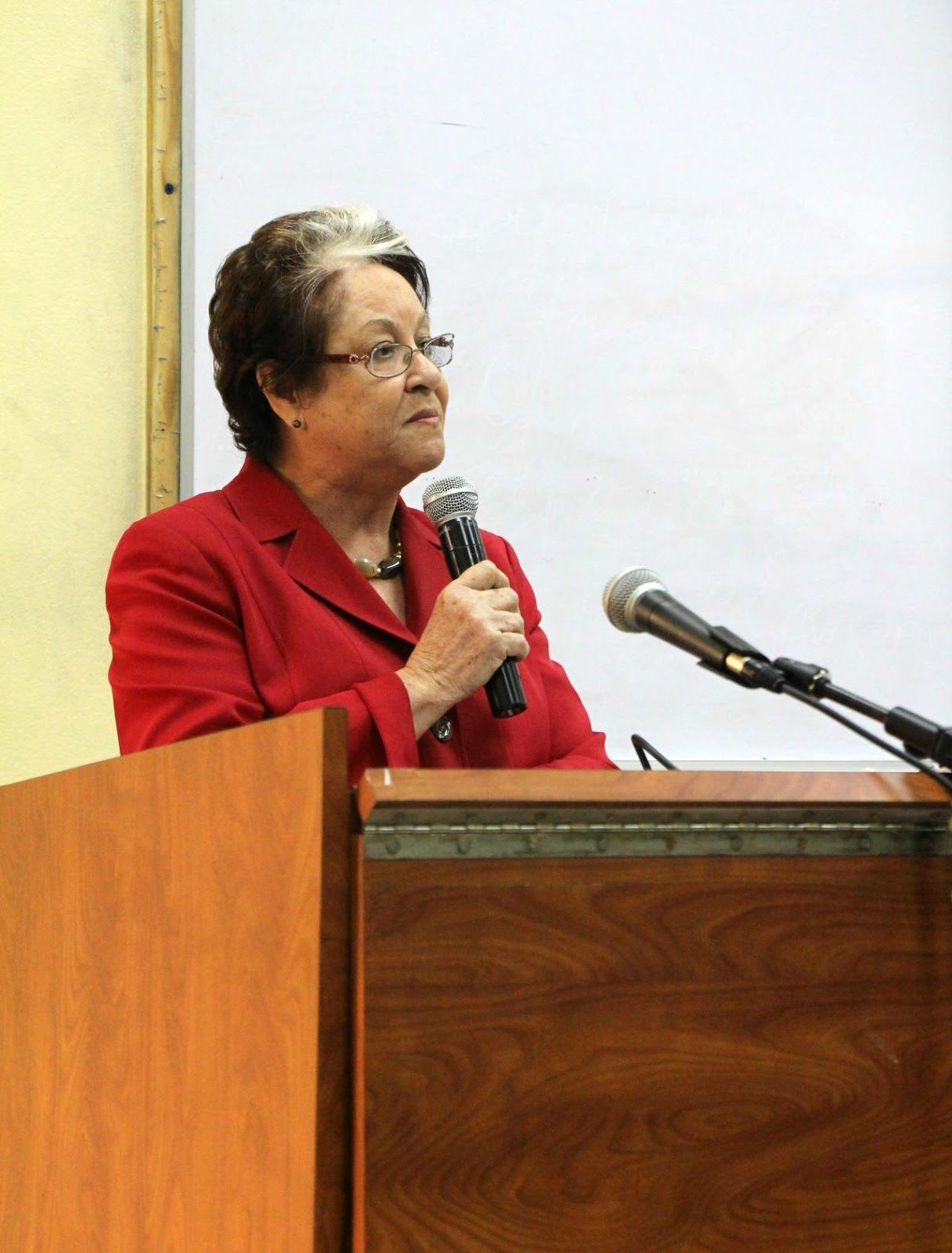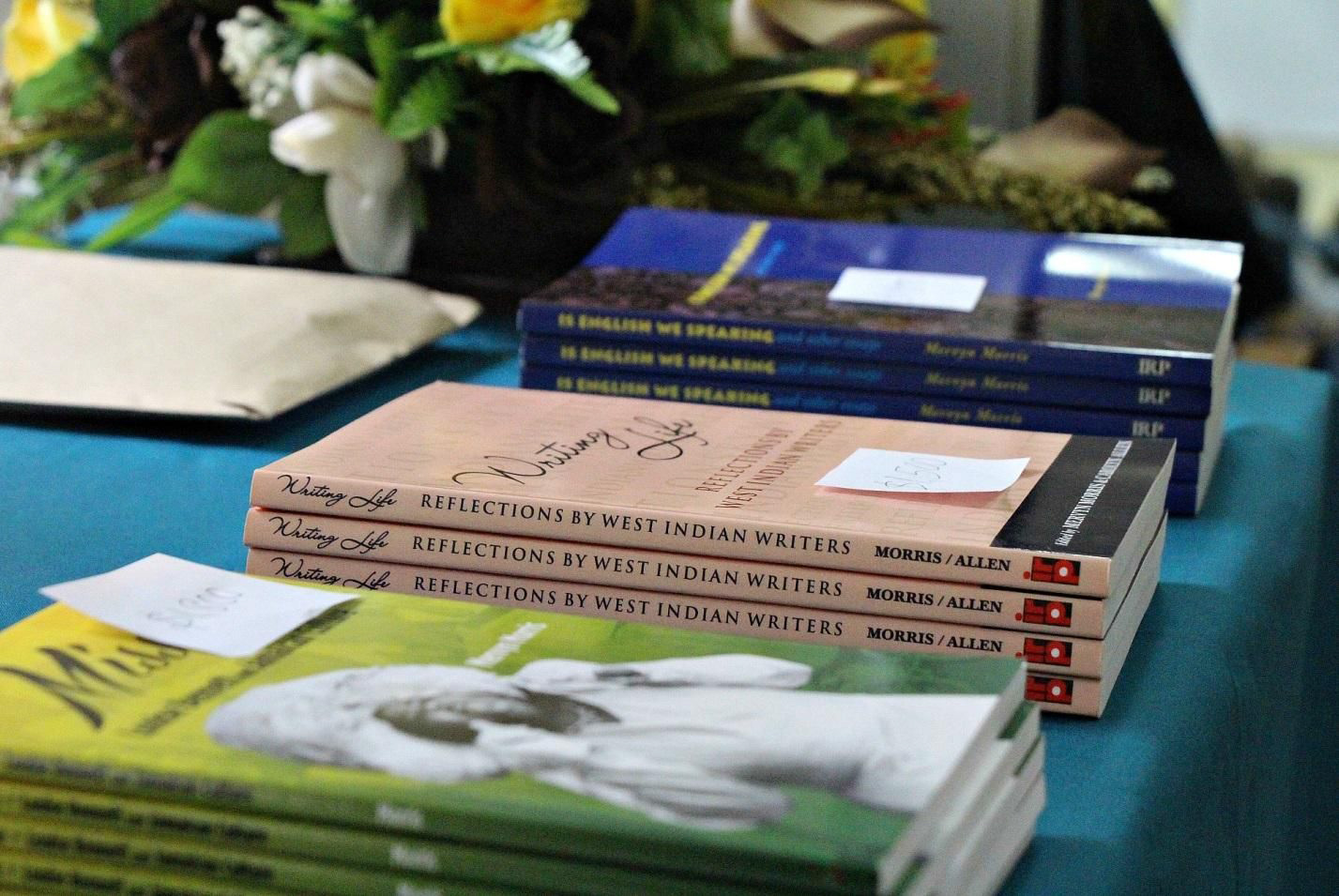“English is a derivation of French, German and other languages, but creole is a corruption of English… If dem derive wi can derive to!”
It was this quote from the Honorable Louise Bennett, that seemed to echo the loudest and longest during the Language and Louise Bennett lecture, on January 28, 2016 at the University of Technology, Jamaica.
The Lecture was the third installment in the Hilory Pamela Kelly Distinguished Lecture Series—a series held in honour of UTech Jamaica’s own Pamela Kelly. As a teacher and lover of the English language as well as a contributor to the Faculty of Education and Liberal Studies at UTech Jamaica, Mrs. Kelly received her honour by sitting among peers and listening in to the discussion of Jamaican language and its inferable link to the work of the Honourable Louise Bennett. Her distinguished guests included Jamaica’s second Poet Laureate, the Honorable Mervyn Morris O.M. It was Professor Morris who in a spirited fashion, reviewed Bennett’s work throughout the lecture and highlighted her great contribution to Jamaican language, aiding its freedom of use today in the arts and otherwise.
Morris said in his own words of Jamaican creole and language, “it is the first language for many of us…first not in precedence but in time”. Adding to this, he explored Jamaican language as a “continuum” that should include both the standard English we are taught, and the Jamaican dialect which we naturally learn without teaching. He spoke of Bennett’s decision to promote Jamaican creole in her poetry and dramatic works as a door opener to the Jamaican confidence and pride we have today, a sentiment seemingly echoed by the warm reception of the audience. In his excerpts and readings of Bennett’s famous works Not Even Likkle Twang and Dry Foot Bway, Professor Morris skillfully highlighted how Miss Lou was able to playfully discuss the serious matter of our own “language prejudices”.

While in other poems like Maas Charlie, Morris praised Ms. Bennett’s witty humour and play on the differences and similarities of both Standard English and Jamaican creole. Morris’s review left the audience in the midst of realization that indeed, Louise Bennett’s confrontation of life’s maladies with humor and Jamaican quips had somehow quietly, while unapologetically, uprooted our former disdain for our language and had sown new seeds, for a generation of poets, reggae and dancehall artistes, fearlessly using our Jamaican language.

Inspired by the eye and ear opening lecture, audience members shared in the discussion with Morris later on in a question and answer section, where many gave their own experiences with the language and queried Professor Morris for further thoughts and opinion on the language culture. All thoughts expressed, whether by the audience or Mr. Morris, seemed synonymous with Mrs. Kelly’s earlier opening remarks when she recounted “I’ve never been comfortable even now, to speak in places where only the Queen’s language was accepted. But It is through her singing and poetry that I and many like myself, became espoused to Jamaican language.”

While the lecture came to an end with closing remarks from UTech Lecturer Mrs. Beverly Josephs, the discussion no doubt did not end there. Stirred by Professor Morris’ review, the guests could still be heard chattering away amongst themselves about language, loudly and proudly, in a language of their own.
Article by Ornella Taylor | Photos by Ashli White

